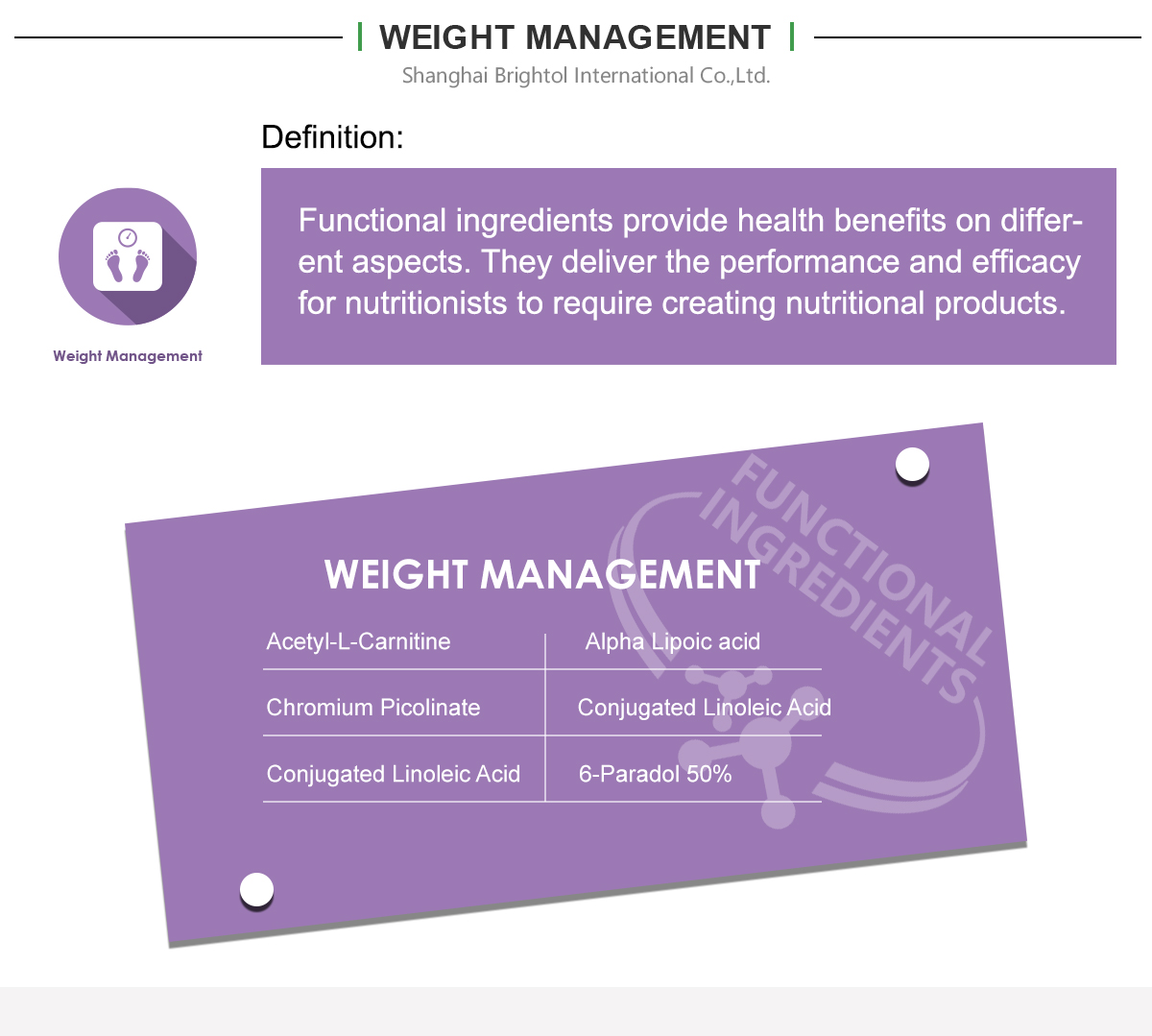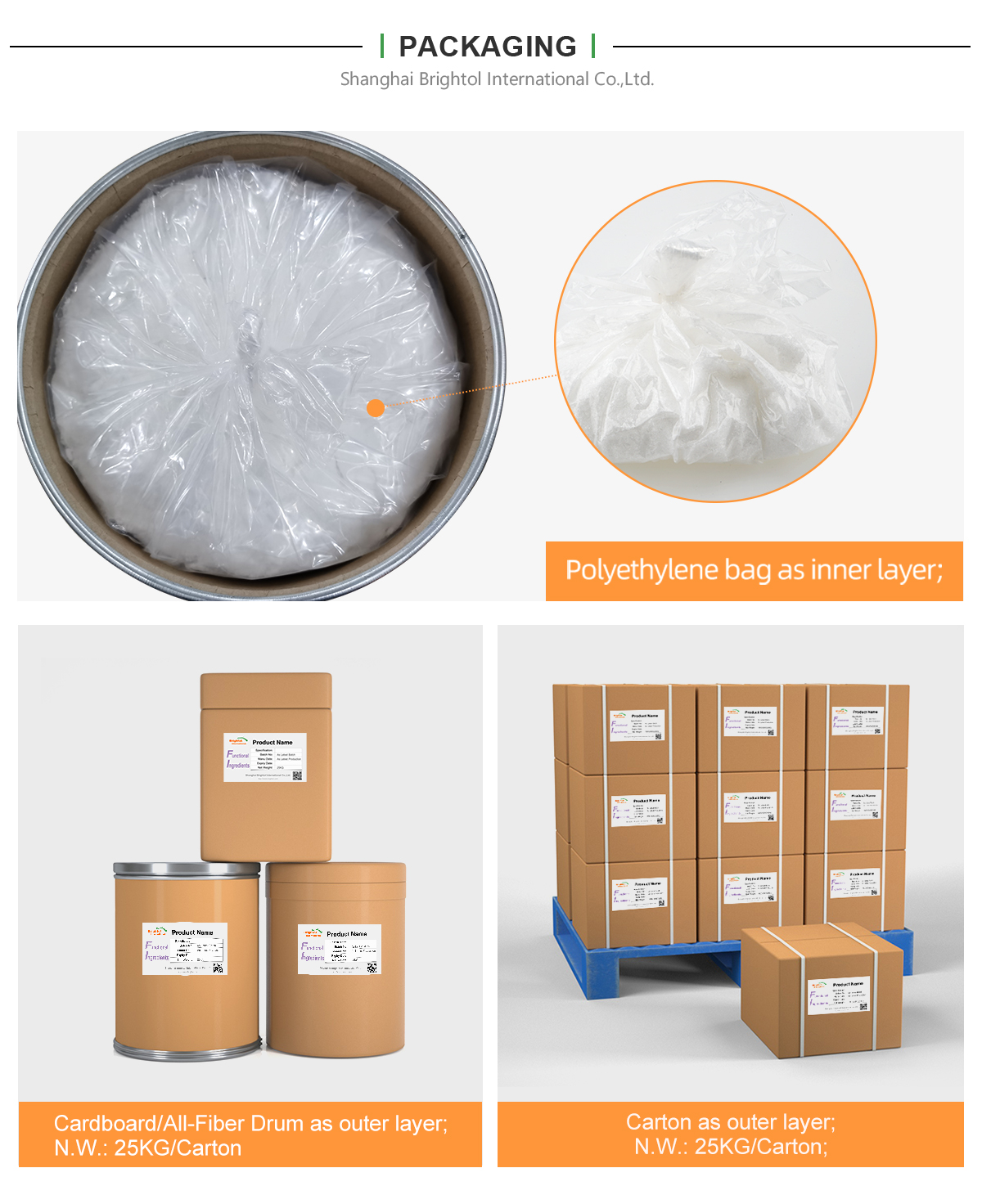

Product Name: Calcium Pyruvate
Synonyms: 2-Oxo-propanoic acid calcium salt; Pyruvic acid Calcium salt
Molecular Formula: C6H6CaO6
Molecular Weight: 214.19
CAS No.: 52009-14-0
EINECS: 257-599-9
Description:
Calcium pyruvate is a natural form of calcium produced by your body that aids in the digestion of carbohydrates. Pyruvic acid is produced in the body when it breaks down sugars and is naturally available in foods like apples, cheese, and wine. It is stabilized by the addition of calcium or sodium. The resulting compound initiates the body’s production of adenosine triphosphate (ATP) during aerobic respiration when the body takes in extra oxygen while moving. Calcium pyruvate is sold primarily as a weight-loss supplement and is available in most vitamin stores.


Product Name: Calcium Pyruvate
Synonyms: 2-Oxo-propanoic acid calcium salt; Pyruvic acid Calcium salt
Molecular Formula: C6H6CaO6
Molecular Weight: 214.19
CAS No.: 52009-14-0
EINECS: 257-599-9
Description:
Calcium pyruvate is a natural form of calcium produced by your body that aids in the digestion of carbohydrates. Pyruvic acid is produced in the body when it breaks down sugars and is naturally available in foods like apples, cheese, and wine. It is stabilized by the addition of calcium or sodium. The resulting compound initiates the body’s production of adenosine triphosphate (ATP) during aerobic respiration when the body takes in extra oxygen while moving. Calcium pyruvate is sold primarily as a weight-loss supplement and is available in most vitamin stores.
Calcium Pyruvate Benefits:
Calcium pyruvate is a natural substance made in our bodies that contributes to metabolism and the digestion of carbohydrates. The unstable form of this substance, known as pyruvic acid, is stabilized by the addition of sodium or calcium. Calcium pyruvate is the compound that starts the Kreb's Cycle, by which our bodies make adenosine triphophate (ATP) or energy during aerobic respiration. Aerobic respiration is that which occurs in the presence of oxygen, during exercises, such as running and jogging. Natural sources of pyruvate include apples, cheese, dark beer and red wine.
Fat Loss
Many claim that calcium pyruvate can help with weight and/or fat loss. In theory, since it is the raw material for cellular respiration, supplementing with calcium pyruvate should increase the amount of energy burned, therefore allowing for more fat burning. The question is whether this is actually the case.
Energy and Endurance
Calcium pyruvate supplementation may benefit endurance athletes whose bodies are constantly turning over ATP production for sufficient energy to perform sustained bouts of exercise. Transporting glucose and protein to muscle cells and making optimal levels of ATP available are the theoretical benefits of calcium pyruvate.








